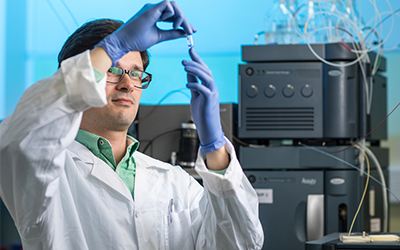
Over the years, alternatives to Protein A chromatography capture column in the monoclonal antibody platform process have been explored with varying degrees of success. Among those alternatives, cation exchange chromatography (CEX) has been widely reported as an alternative to protein A as a capture column. Conventional CEX resins, however, have low selectivity for antibodies in clarified cell culture media under typical media conductivities. Therefore, achieving reasonable binding to the CEX capture column requires either dilution of the feed, a concentration/diafiltration step, or pH adjustment prior to loading. Careful control of feed concentration, buffer composition, and pH prior to CEX capture can help optimize performance of the resins under these conditions.
In this webinar, Advanced Instruments in partnership with Jefferson Institute for Bioprocessing will discuss the evaluation of the impact of monitoring osmolality during an ultrafiltration/diafiltration (UF/DF) step prior to CEX capture of monoclonal antibodies from mammalian cell cultures. This was compared with conductivity monitoring to build a model based on osmolality measurements.
Presented by – Thiago Millen, Lead Scientist, Jefferson Institute for Bioprocessing (JIB)
Thiago Millen is the Lead Scientist at Jefferson Institute for Bioprocessing (JIB), with a broad background in downstream process development. Since 2008, he has worked at fast-paced biotech startups and in a large pharmaceutical company. He has experience in optimizing protein expression and developing multi-step purification strategies for antibodies and other therapeutic proteins, and performing protein analytics to support process characterization studies.
Please fill out the form to view this content.